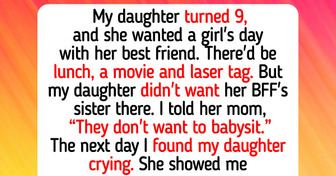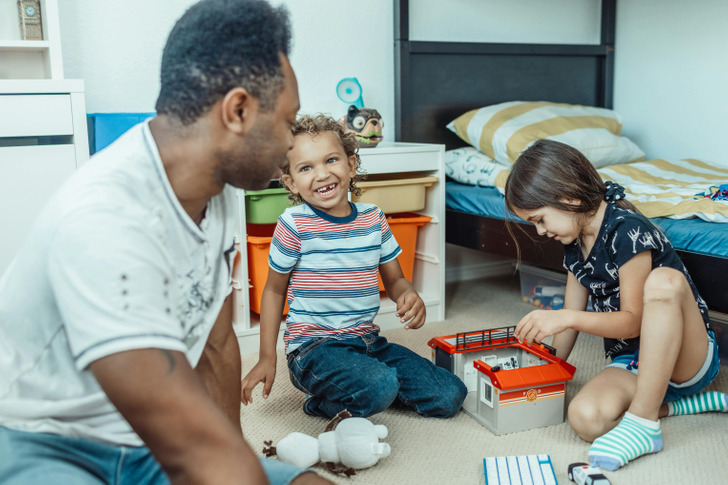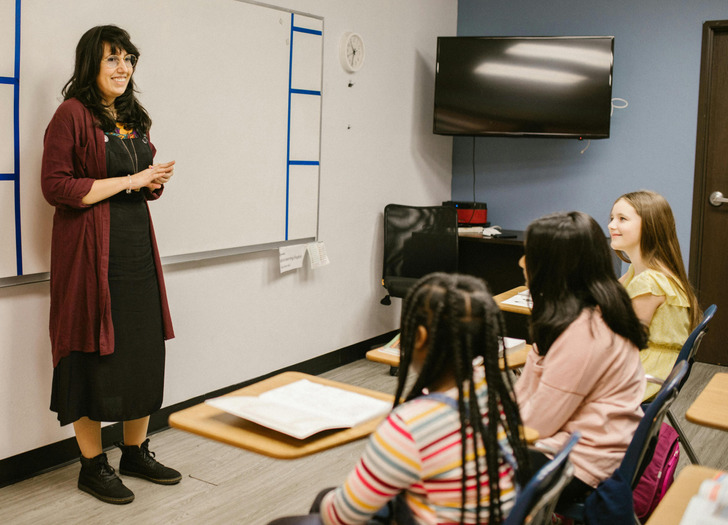12 Acts of Kindness That Made Someone See the Horrible Truth
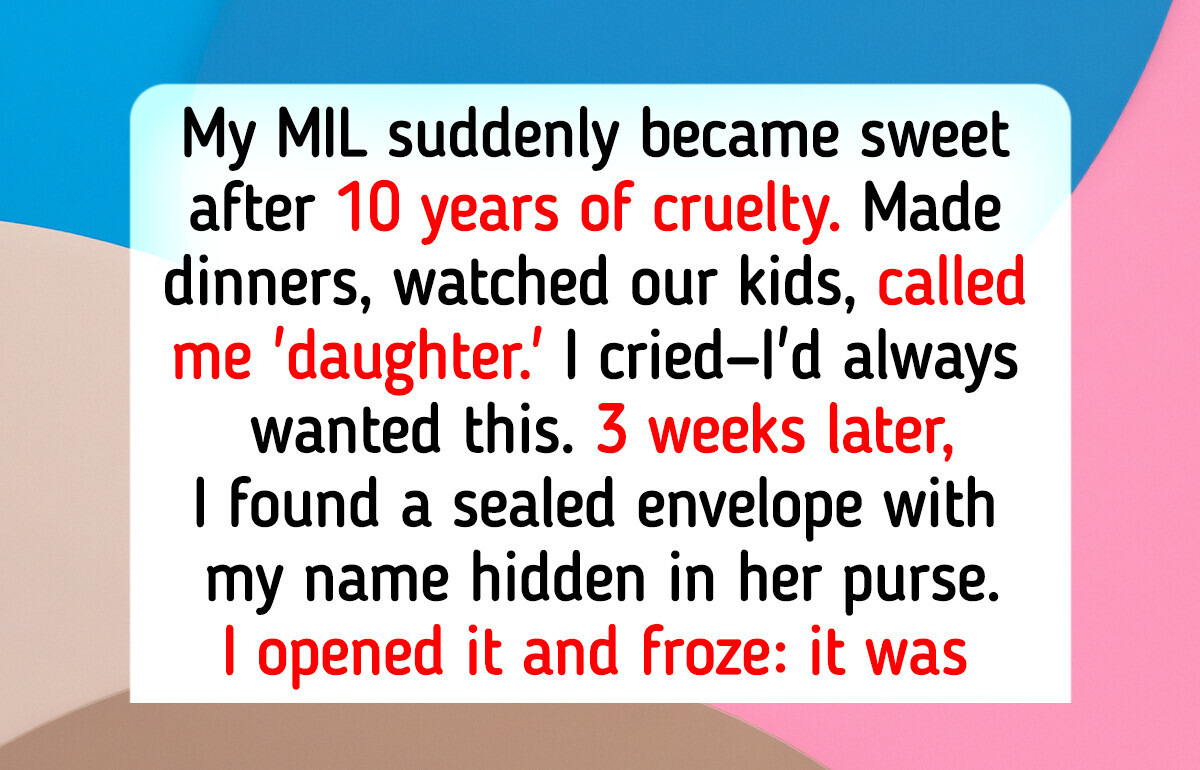
Sometimes the most painful truths arrive wrapped in gentleness. When someone responds to our worst behavior with unexpected grace, it forces us to see ourselves clearly—often for the first time. These stories capture that uncomfortable moment when kindness becomes a mirror, reflecting back not the person we thought we were, but the person we’d actually become.
- I refused to let my daughter’s friend come over because her clothes were “too worn out.” I told my daughter: “We have standards. Find better friends.” My daughter went quiet.
A week later, that girl’s mother came to our door with a thank-you basket: “Your daughter has been so kind to mine. She’s been bringing extra lunch to share without making it obvious. You’re raising someone special.”
I realized my daughter had been secretly feeding her friend because I’d made her feel unwelcome in our home. My 10-year-old had more compassion than I did. That girl became a regular at our dinner table after that.
- I complained loudly at a restaurant that our waiter forgot our appetizer. I demanded to speak to the manager, made a scene, said I’d leave a terrible review. The waiter apologized profusely.
When our meal came, there was an extra dessert we hadn’t ordered. The note said: “Compliments of your waiter—he paid for this himself to make up for the mistake. He’s saving for his mom’s birthday and used his tip money. Please enjoy.”
I’d humiliated someone over a forgotten appetizer, while he’d spent his own money to make me happy. I left a $70 tip and deleted my half-written review.
- I mocked my coworker for bringing “the same boring lunch” every day—plain rice and vegetables. I joked about it in front of the team, said she needed to “live a little.” She smiled awkwardly and said nothing.
The next day, she brought extra lunch and offered it to me: “I made too much. Would you like some?” It was delicious—her grandmother’s recipe, made with expensive ingredients she budgeted carefully for because she sent most of her paycheck to support her family overseas.
She’d been eating simple lunches, so her siblings could stay in school. I’d mocked someone’s sacrifice as boring. I apologized and asked her to teach me the recipe.
- I told my son his Father’s Day gift was “cheap” because he made it instead of buying something. He was 10. He’d spent weeks on a painted picture frame with our photos. I said, “Next time, save your allowance for a real gift.” He took it back to his room without crying.
On my birthday, he gave me an envelope: inside was every dollar of his allowance for three months and a note: “Now you can buy yourself something real. I love you, Dad.”
He’d saved his ice cream money, his toy money, everything—to prove his love was real because I’d told him his handmade gift wasn’t enough. I framed his original picture that night and it’s never left my office.
- I snapped at my elderly neighbor for letting his leaves blow into my yard. “Control your property. I’m tired of cleaning up your mess.” He apologized.
The next week, I noticed my driveway was shoveled after a snowstorm—I’d slept through it. Then again after the next storm. I finally caught him doing it at 6 am. He said, “I’m up early anyway, and your work starts before mine used to. Thought I’d help.”
He’d been shoveling my driveway for weeks after I’d yelled at him about leaves. I bought a snowblower, and now we trade off—his driveway one week, mine the next.
- I told my sister I couldn’t come to her small apartment for Thanksgiving because it was “too cramped” for my standards. I suggested she come to my house instead if she wanted to see the family. She said she understood.
Thanksgiving morning, she arrived at my door with her entire meal, cooked in her tiny kitchen: “I know you’re hosting is more comfortable for everyone. I wanted to contribute so you didn’t have to do everything.”
She’d spent two days cooking in a kitchen the size of my closet to make my life easier after I’d rejected her invitation. I realized she’d invited me first because she wanted to host, to feel like she had something to offer. I’d made her feel like her home wasn’t good enough.
- I criticized my daughter’s teacher for giving her a B instead of an A. “She’s better than this. You’re not challenging her enough.” I demanded a meeting.
The teacher showed me my daughter’s work—solidly B-level—then pulled out a folder: “These are the extra sessions I’ve been doing with her after school, unpaid, because I believe in her potential. She’s improving, but she’s not quite at A level yet. We’re getting there together.”
She’d been investing her personal time in my child while I’d been attacking her competency. My daughter later told me those after-school sessions were her favorite part of the day—she felt seen and supported. I’d almost ruined that by assuming the worst.
- I refused to help my broke college roommate with rent when she asked for a one-time loan. “You should’ve budgeted better. Not my problem.” She moved out shortly after.
Years later, I lost my wallet traveling abroad—no money, no cards, no ID. I called everyone I could think of. She answered, wired me money within an hour, no questions asked. “I remember what it’s like to need help. Pay it forward when you can.”
She’d saved someone who’d abandoned her in crisis. I paid her back triple, and we rebuilt what I’d broken.
- I told my husband his hobby of building model trains was “childish” and taking up too much space. I made him get rid of his entire collection—years of work. He didn’t fight me.
Months later, for my birthday, he gave me a handmade jewelry box: “I used some of the wood from the trains. Thought you might like it.”
He’d turned the hobby I’d forced him to abandon into a gift for me. I helped him rebuild his collection in our basement, and now I build with him.
- My MIL suddenly became sweet after 10 years of cruelty. Made dinners, watched our kids, called me ’daughter.’ I cried—I’d always wanted this.
3 weeks later, I found a sealed envelope with my name hidden in her purse. I opened it and froze: it was a birthday card she’d been working on, asking if we could start over.
Inside was a note: “I’ve been cruel because I was jealous—my son chose someone wonderful, and I felt replaced. I’m sorry for the lost years. Can we try again?”
She’d been planning this apology for weeks, terrified I’d reject her. I’d spent 10 years hating someone who just didn’t know how to share love.
- I complained to HR about a coworker who “smelled bad.” I said it was unprofessional and distracting. HR talked to him.
The next week, he brought in homemade cookies for the whole office with a note: “Thanks for the feedback. I’ve been biking to work to save money for my kids’ school supplies, and I didn’t realize it was noticeable. I’ll shower here before work now. Hope everyone enjoys these!”
I’d humiliated someone trying to be a good parent. I started biking with him—now we both shower at the gym, and his kids got their supplies from both of us.
- I laughed when my brother said he was going back to school at 35. “You’re too old. That ship has sailed.” He didn’t argue.
Four years later, he graduated and sent me an invitation to his ceremony with a note: “Remember when you said it was too late? You motivated me to prove life doesn’t have deadlines.”
He’d reframed my cruelty as motivation and thanked me for it. I stood and cheered loudest at his graduation, crying through the whole thing.
Discover how tiny acts of kindness can spark big change—unexpected, heartfelt, and unforgettable. These 12 real-life stories will restore your faith in humanity and remind you that one thoughtful gesture can ripple farther than you know. 👉 12 Stories That Prove Little Acts of Kindness Never Stay Little
Comments
So you found a HIDDEN ENVELOPE? Do you USUALLY go through other women's purses?
No, actually she didn't. It was . NOT in her possession, it was in SOMEONE ELSE'S PURSE. UNLESS and UNTIL it was GIVEN TO HER, she was invading someone else's privacy. She snooped where she had NO RIGHT, whether it had her name, or not!
Related Reads
16 Moments That Prove a Kind Heart Can Quietly Change Everything
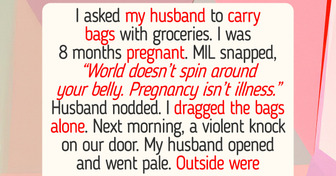
15 Moments That Show Quiet Kindness Is What Really Holds the World Together
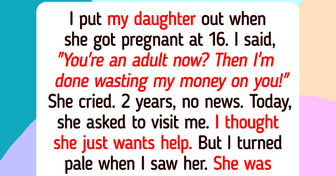
I Refuse to Let My Stepdaughter Return Home After She Violated My Trust
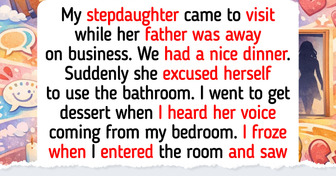
I Refuse to Sacrifice My Life Because My Family Chose Me as Grandma’s Caretaker
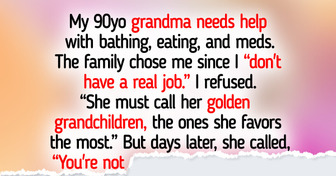
11 Moments That Prove Quiet Kindness Is the Strength That Holds the World Together
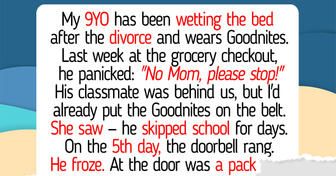
I Canceled Paying for My Grandson’s Life Costs, and He Turned My Kindness Into a Price
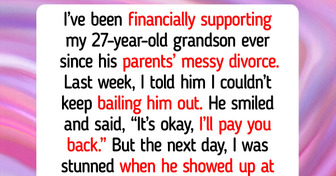
12 Moments When Someone’s Kindness Became Their Most Powerful Weapon
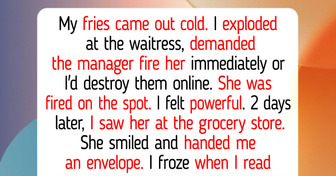
I Refused to Watch My DIL Give Birth— She Made Sure I Regretted That Moment
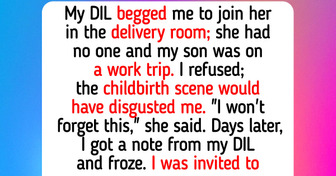
Our “Romantic” Vacation Was Hijacked by My Wife’s Family—And It Forced Us to Reevaluate Our Relationship
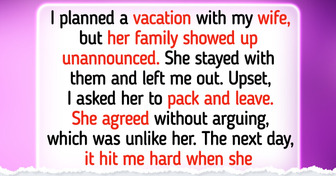
12 Moments That Remind Us to Stay Kind Even When Life Isn’t Gentle
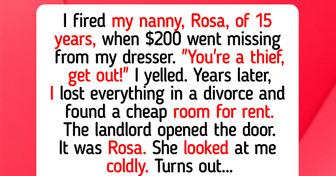
I Refuse to Sacrifice My Retirement to Help My Unemployed Son, I’m Not His ATM
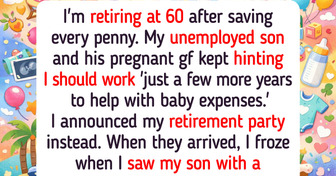
I Refused to Let a 5 Y.O. Attend My Daughter’s Party—Now They Say I’m Cruel
